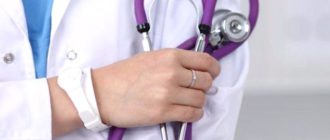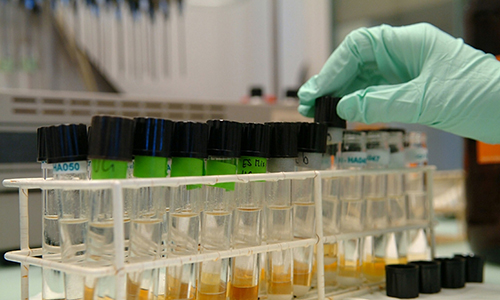Medications For ADHD and Anxiety
Certain people who take stimulants can experience adverse effects like an upset stomach, tics and changes in heart rate or blood pressure. These symptoms usually occur in the first few days after taking medication and will go away on their own after several weeks.
Nonstimulant drugs for ADHD such as atomoxetine (Strattera) have a slower rate of starting than stimulants, but they are effective and can work for up to 24 hours.
Non-stimulant Medication
Medications are the primary treatment for attention-deficit disorder (ADHD), and both non-stimulant and stimulant drugs can help improve your or your child’s symptoms. Finding the right medication could take some time as people react to medications in different ways. It may take a while to find the right dosage and side effects may differ.
The body and brain chemical composition of an individual determine how the medication will affect them. In reality, the very first ADHD medication a person attempts may not be effective or cause bothersome side effects. It is important to communicate with your doctor about the symptoms your child or you are experiencing, and how they’re reacting to medications. This is called open communication, and it’s crucial to the process of finding the right medication.
The majority of people suffering from ADHD start treatment with stimulant drugs which are the most common type of ADHD drugs. These medications are usually prescribed to adolescents and children however they are also prescribed to adults. The medication stimulates the central nervous system to increase concentration, reduce impulse and hyperactivity. These stimulants are controlled substances, meaning that they can only be prescribed by a licensed doctor.
The most common stimulant medications are amphetamine and methylphenidate. These drugs are effective in 70 to 85 percent of people with ADHD. These medicines can also be beneficial for anxiety, depression and some bipolar disorders. But there are several drawbacks of using stimulant medication, including increased risk of heart problems sleep disturbance, as well as a temporary reduction in growth. They can also worsen tics for some people, which are repetitive sounds or movements such as eye blinking and throat clearing.
Some people who take stimulants experience a sudden loss of energy and a strong desire to eat when they stop taking the drug. Certain people might also notice changes in their heart rate or blood pressure depending on the dosage. These medications can also increase appetite and, in some instances, cause tics and Tourette’s syndrome symptoms to worsen.
Non-stimulant medications are an option for those with ADHD who are not cured by stimulants, or suffer from side effects that are not tolerable or have a history of abuse. Atomoxetine (also known as Strattera (and Viloxazine) is approved by the FDA to treat ADHD. These drugs work by targeting receptors in dopamine, a chemical in the brain. This helps improve attention and reduces impulse control. They are less likely to cause worsening of symptoms or cause tics in those who suffer from Tourette’s.
Some healthcare providers prescribe antidepressants on their own, even though the FDA has not given them approval for ADHD treatment. These medications help by increasing levels of dopamine and norepinephrine in the brain. Some healthcare providers prescribe a mix of antidepressants along with an SNRI in order to treat ADHD and anxiety. These drugs are also referred to as selective serotonin reuptake inhibitors.
Anxiety Medications
People suffering from ADHD often experience anxiety or worry regularly. Symptoms of anxiety can make it hard to accomplish everyday tasks and can trigger feelings of restlessness or nervousness. Additionally, anxiety can also interfere with the ability of people to sleep and focus.
Fortunately mental health professionals like psychiatrists have many tools to assist people suffering from anxiety disorders. These include medications like SSRIs, benzodiazepines, and beta blockers. They may also suggest behavioral or lifestyle treatments that could improve symptoms.
Certain stimulant medicines like Vyvanse or Ritalin used to treat ADHD can cause anxiety to increase. This is because these medications affect neurotransmitters which regulate attention and mood. This can trigger anxiety or restlessness in some people, and is difficult to differentiate from ADHD symptoms. In these instances, it is important to regularly see a mental health professional. They will be able to monitor your symptoms, and make any adjustments needed to ensure that your medication are effective.
The FDA has approved a number of antidepressant drugs to treat anxiety disorders. They include selective serotonin reuptake inhibitors (SSRIs) like fluoxetine (Prozac) and sertraline (Zoloft) as well as serotonin norepinephrine reuptake inhibitors (SNRIs) such as citalopram (Celexa), fluoxetine/prozac and paroxetine (Prozac, Zoloft). These are drugs that are frequently used «off label» to treat anxiety disorders. Tricyclic antidepressants, such as imipramine and clomipramine, have also been used to treat anxiety disorders, but they are less commonly prescribed due to their adverse effects, like dry mouth and weight gain. They also can cause anxiety and sedation, as well as urinary hesitancy.
The benzodiazepines diazepam and alprazolam can be beneficial in the treatment of anxiety for certain adults. They are also sometimes used off-label to treat ADHD.
Anxiety and ADHD are often linked and both are treatable by taking medication and therapy. If you’re suffering from anxiety, talk to an experienced psychiatrist for a thorough assessment and tailored treatment plan. If you don’t have a psychiatrist available in your area, visit MEDvidi to get an online diagnosis and treatment recommendations. Contact us for assistance.
Treatments for ADHD
There are a variety of medications available to treat ADHD, and many of them can aid in reducing anxiety symptoms. When deciding on the best medication for your child or yourself, it’s essential to talk with your doctor. It could take a few tries to find a medication or combination of medications that eases anxiety symptoms without aggravating your ADHD symptoms. It is also important to tell your doctor about any other medications that you or your child are taking, whether prescription or over the counter adhd medication-the counter, so they can general practitioners prescribe adhd medication look for possible interactions.
Most ADHD medications are classified into two categories: stimulants or non stimulant adhd medications for adults-stimulant medications. Stimulants, which are the most commonly used ADHD medication, enhance concentration and attention by activating brain receptors. Amphetamines are one type of stimulant medications. Other kinds include methylphenidates and dextroamphetamines. non prescription adhd medication for adults-stimulant medicines, such as atomoxetine (Atomoxetine) and bupropion (Wellbutrin) behave differently than stimulants, and don’t alter the heart rate or blood pressure like stimulants do. These medications take longer to start working, but they can assist with focus, attention and the ability to focus.
If you or your child are taking a stimulant drug be aware that it may increase anxiety symptoms in certain individuals. Consult your physician when you notice an increase in anxiety symptoms after taking an stimulant. They can adjust the dose or switch to non-stimulant medications to avoid this.
Certain antidepressants that are off-label are prescribed for ADHD. Bupropion is one of the most commonly prescribed, as it increases the neurotransmitters norepinephrine and dopamine in the brain. Tricyclic antidepressants like imipramine, Tofranil, or nortriptyline are also frequently used to treat ADHD. Tricyclic antidepressants have more challenging adverse effects than other drugs, so they are usually only used as a last resort when other ADHD medication For Adhd and anxiety fail to work.
It is also essential to be open and honest with your health care provider about the medications you or your child is taking, including any prescription supplements or medications you might be using. It is also important to attend regular follow-up appointments so that you physician can keep track of how the medications affect you or your child and make any necessary adjustments.
 It is not uncommon for those with ADHD to also suffer from anxiety disorders. There are a variety of treatment options available to help manage both conditions, such as stimulant and non-stimulant medications therapy, self-help techniques and therapy. A healthy sleep routine and a balanced diet and relaxation techniques all help to decrease anxiety and ADHD symptoms. It is also important to have a solid support system in place to help you or your child cope with the difficulties of having anxiety and ADHD.
It is not uncommon for those with ADHD to also suffer from anxiety disorders. There are a variety of treatment options available to help manage both conditions, such as stimulant and non-stimulant medications therapy, self-help techniques and therapy. A healthy sleep routine and a balanced diet and relaxation techniques all help to decrease anxiety and ADHD symptoms. It is also important to have a solid support system in place to help you or your child cope with the difficulties of having anxiety and ADHD.




